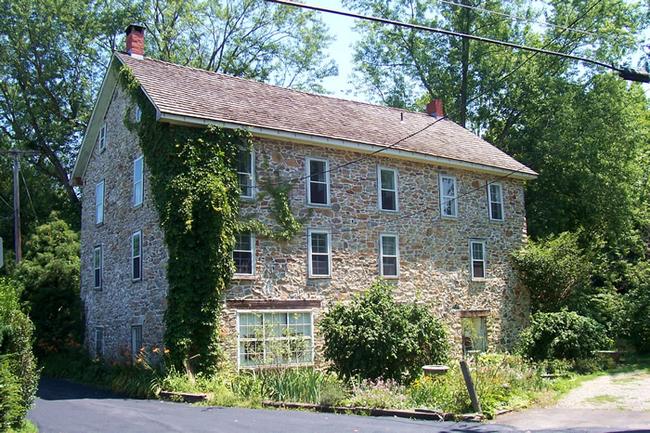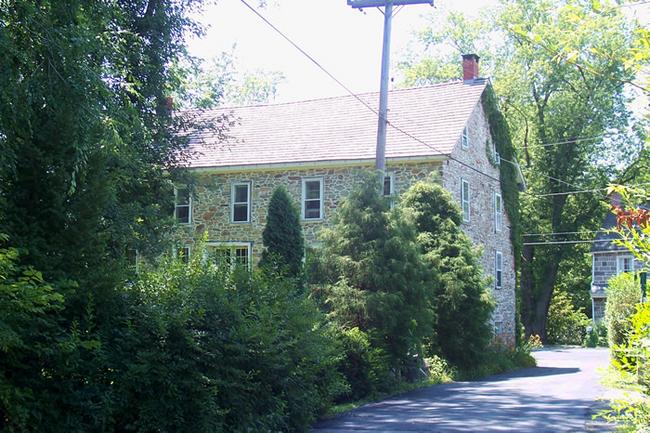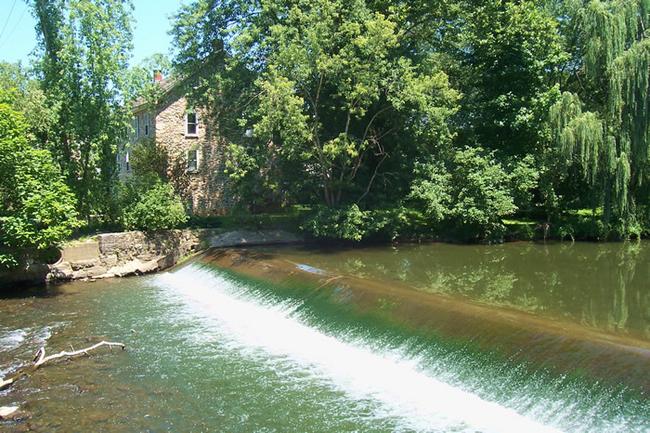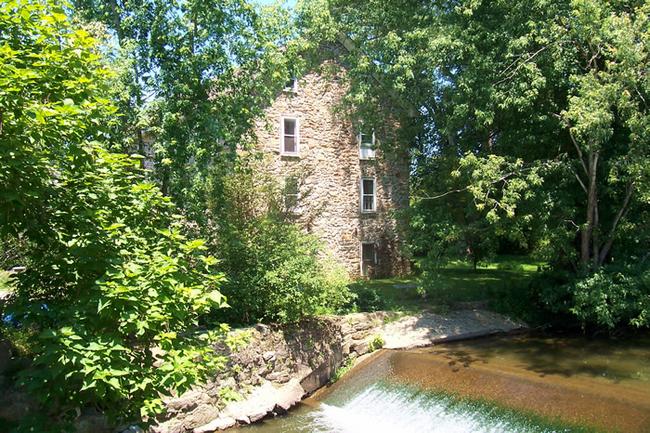
Fines Wool Manufactury
Warren Co. | New Jersey | USA
Watersource: Musconetcong River.
Fines Wool Manufactury
Take the US 22 Alt exit from I-78 east of Phillipsburg, N.J. Go south on Still Valley Road for about 2.5 miles, turn right on Ch 639/Warren Glen-Bloomsbury Road for about 0.5 miles. Continue straight on Cr 519 south for about 0.4 miles. At Warren Glen, take Ch 627/Riegelsville-Warren Glen Road southwest for 3.5 miles, turning left on Mt. Joy Road at Finesville. The mill is the stone building on the left before crossing the bridge over the Musconetcong River.

This stone mill was built by the Fine (Fein) Family some time circa 1810 and was used as wool manufactury until 1866. The 1820 State Industrial Census documented that the mill employed 6 men and 4 children and was processing 2100 pounds of wool and producing 3400 yards of cloth annually. The inventory of this mill included carding, picking, spinning and fulling machines and well as dyeing tubs and weaving looms.

In the 1870’s, both the wool mill and the paper mill across the river were purchased by the Taylor Stiles company and converted into knife rolling mills. However, little historic fabric remains of the industrial components of the wool or knife rolling mill today. The mill race and lower stories were filled in during the early part of the 20th century, and only the top edge of the race and the arched opening through which the waterwheel would have projected are visible. In addition, there is one iron gear shaft which runs the length of the mill on the ground floor Old photographs, documents and architectural evidence show the existence of another structure which extended from the front of the mill. It was a two story timber frame building which was used as a blacksmith and wheelwright shop until it was torn down in the early part of the 20th century.

The third floor of the mill reflects a later part of the mill’s history. From 1919 to 1951, it was owned and used as a lodge for the Improved Order of the Red Men, America’s oldest fraternal organization chartered by Congress. The organization was founded in 1765 as a secret patriotic society working underground to establish freedom and liberty from British rule. Among their many acts was the 1773 Boston Tea Party, where the patriots disguised themselves as Mohawk Indians and dumped 342 chests of tea into Boston Harbor.

The Red Men used the mill for both their lodge meetings and as a community dance hall. Whether it was because of the secret nature of the society, or (as the purchase of the mill was made in 1919) to hide prohibition violations—the entrance door to the third floor hall has always sported a peek hole. The first floor of the building is now an art studio and the second & third floors have been converted into living quarters since the 1950's. *Update: Thanks to Amy Hollander for mill information 2007*